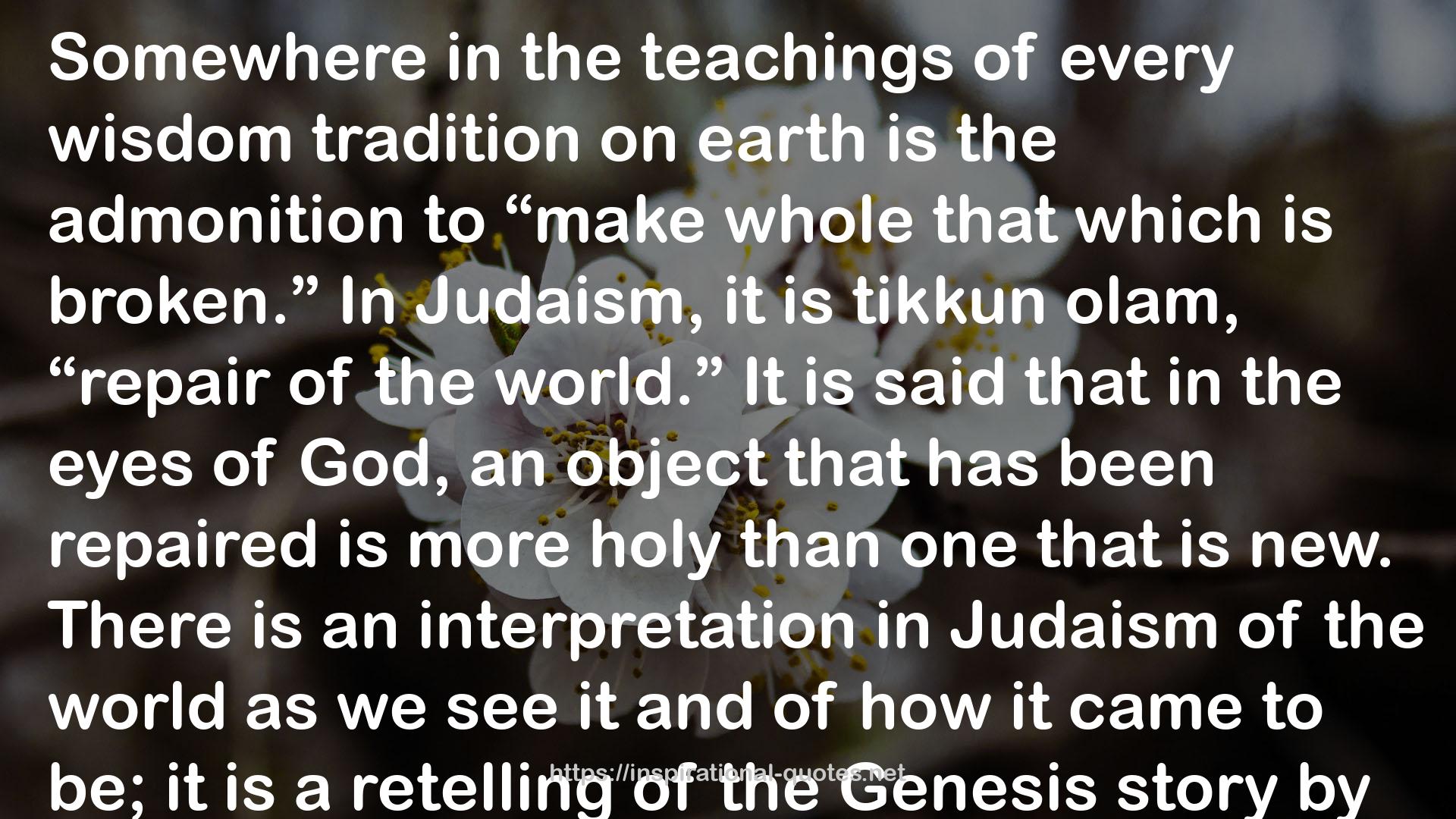" Somewhere in the teachings of every wisdom tradition on earth is the admonition to “make whole that which is broken.” In Judaism, it is tikkun olam, “repair of the world.” It is said that in the eyes of God, an object that has been repaired is more holy than one that is new. There is an interpretation in Judaism of the world as we see it and of how it came to be; it is a retelling of the Genesis story by the sixteenth-century mystic Isaac Luria. In his vision, Luria saw that God filled the entire universe completely and perfectly and that the world could only be created by somehow making a space for life. Luria imagined that God contracted, like a series of containers within containers, and by becoming smaller and smaller, God allowed a new creation to emerge. When the enormous energy and potential of that creation finally exploded outward, sparks of the divine scattered throughout the universe: the universe we see. The teachings that follow from this, in the wisdom tradition of the Kabbalah, tell us that we are to gather the shards and the sparks and bring them back together. This is the meaning of tikkun olam. Olam, or “world,” comes from the same root as hidden, and so the repair we are asked to accomplish requires that we see the sacred hidden within the ordinary — the wholeness that exists in all things, everywhere. "
― , Repair Revolution: How Fixers Are Transforming Our Throwaway Culture
